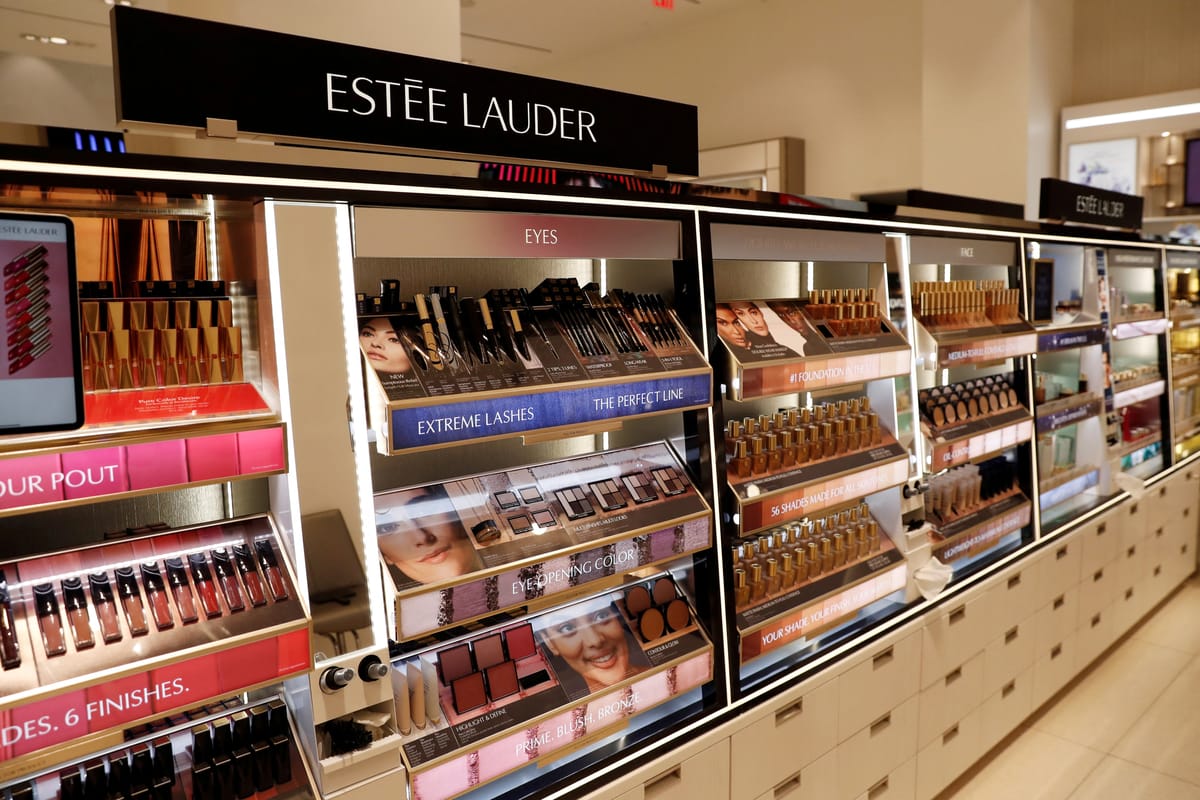Estée Lauder announces major job cuts
Estée Lauder has said it's slashing up to 3,000 jobs to streamline operations.

A few minutes every morning is all you need.
Stay up to date on the world's Headlines and Human Stories. It's fun, it's factual, it's fluff-free.
The backstory: Estée Lauder has been a big name in the cosmetics world since 1946. You've probably heard of some of its brands like Clinique, MAC, Tom Ford, Le Labo and Jo Malone. But recently, the company hit a rough patch. Sales in duty-free shops in airports and other places in Asia took a nosedive, which hasn't done wonders for its profits. Plus, competition from rivals like L'Oréal, with brands like CeraVe and La Roche-Posay, has also taken a toll on its market share.
In China, a key market for luxury goods, things aren't looking rosy either. The world's second-largest economy is facing rising youth unemployment and a slumping real estate market. Plus, with the country's population dwindling, its post-COVID economic recovery has been shaky.
More recently: Estée Lauder's recent financial reports highlight its challenges, particularly in the Asia-Pacific region. Sales there took a 7% dip last quarter, and profit margins took a hit, too, falling by 60 basis points. The company once again adjusted its yearly profit forecast downward.
The development: Estée Lauder has said it's slashing up to 3,000 jobs to streamline operations. This move sent its stocks soaring by as much as 19% in New York on Monday. The goal? To downsize the workforce by 3% to 5% – right now, it has about 62,000 employees. Alongside the job cuts, Estée Lauder is shifting its focus toward high-end products while also providing support for employees affected by the job cuts. It's also ramping up promotion for specific beauty products, particularly Clinique, in key markets like the US and UK. The cosmetics giant expects these tweaks to generate an operating profit between US$1.1 billion and US$1.4 billion, up from US$800 million to US$1 billion in profit the company estimated in November.
Key comments:
"While mainland China and Asia travel retail declined," said CEO Fabrizio Freda in the company's earnings statement, "these businesses are poised to return to organic sales growth in the second half."
"Efforts to maintain innovation and brand heat across the expansive brand portfolio remain a concern," said Telsey Advisory Group's Dana Telsey in a research note Monday.
"There are a lot of local Chinese brands that have emerged. Many of them are of decent quality and Chinese consumers are more willing than before to try these products and embrace them," said Javier Gonzalez Lastra, luxury-focused portfolio manager at Tema ETFs.




Comments ()